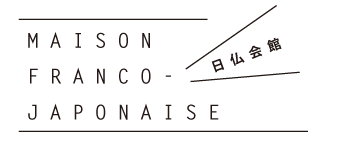2020年6月のイベント
DIJ FRIJ-MFJ Web-Forum
How Real Are Numbers?
Making Sense of National COVID-19 Statistics
Making Sense of National COVID-19 Statistics
使用言語:英語 (通訳なし)
| 日時: | 2020年06月18日(木) 16 : 00 - 17 :30 |
|---|---|
| 場所: | Online seminar |
|
You can access this online event here: The number of infections, reproduction numbers, doubling speeds, death rates: national pandemic statistics are updated, compared and discussed daily. The numbers are shocking, but so are the huge national differences. Why are there so few people infected in Japan? Why is the death rate in Germany so low? Why is the situation in France so bad? For sure, countries apply different testing and reporting methods. Simple comparisons are likely to be misleading. Nevertheless, these numbers are relevant as they influence important policy decisions. In our Web-Forum we ask leading experts in the field from France, Germany and Japan to explain to us the apparent differences in national data related to the COVID-19 pandemic and what the numbers can really tell us about the situations in the three countries. Speakers Moderators Sophie Buhnik, Senior Researcher IFRJ-MFJ Barbara Holthus, Deputy Director DIJ Ansgar Lohse is Director of the I. Department of Medicine at the University Medical Centre Hamburg-Eppendorf (UKE), Germany, since 2005. Until April 2020, he also was head of the Centre of Internal Medicine of the UKE with the focus areas of inflammation, immunology, infection, and currently acts as Deputy Coordinator for Emerging Infections at the German Center for Infection Research. He studied medicine and philosophy in Göttingen, London and Boston from 1978-1984 and received his Doctorate in 1987 at the University of Marburg. After a two-year research stay at the Weizmann Institute of Science in Israel, he worked both clinically and in research at the Johannes Gutenberg-University Mainz. He is a specialist in gastroenterology and infectious diseases, with special interest in basic and clinical immunology. He serves on many scientific boards, is editor or associate editor of various clinical and scientific journals and member of the Hamburg Academy of Sciences where he chairs the commission "Infection & Society". Paul-André Rosental is a Professor in Modern History at Sciences Po in Paris. He studies the making and implementation of social, demographic and health policies in 19th and 20th century Europe and leads the research team ESOPP in those fields (http://esopp.ehess.fr). His latest books include A Human Garden: French Policy and the Transatlantic Legacies of Eugenic Experimentation (Berghahn Books, 2020); and Population, the State, and National Grandeur: Demography as a political science in modern France (Peter Lang, 2018). Having led an ERC Advanced Grant program at the crossroads between social sciences and medicine, he has directed Silicosis: A World History (Johns Hopkins U.P., 2017), the special issue From Silicosis to Silica Hazards in the American Journal of Industrial Medicine, 58, S1, 2015, and contributed to several publications in medical journals including Lancet Global Health and Lancet Rheumatology. Kenji Shibuya is founding Director of the newly established Institute for Population Health at King's College London. He joined King's from The University of Tokyo where he was Professor and Chair in the Department of Global Health Policy, Graduate School of Medicine. He was formerly at the World Health Organization (WHO), where he was a Chief of Health Policy, and is currently serving as Senior Advisor to the Director-General of the WHO. Professor Shibuya also played a key role in setting the direction of the Japanese Government's global health policy after the Hokkaido Toyako G8 Summit, as well as leading the Lancet Series on Japan published in 2011. He chaired the landmark Advisory Panel on Health Care 2035 for the Minister of Health, Labour & Welfare and has held academic appointments at Teikyo University School of Medicine and Harvard University. Sophie Buhnik, Ph.D. in Geography and Urban planning, Research Fellow of the French Research Institute on Japan at the Maison franco-japonaise, Tokyo. Her main scientific interests include the analysis of residential and daily mobilities in the aging and shrinking suburbs of Japan's large cities, and policies tackling the local effects of housing vacancy. She coordinated the latest issue of the journal Ebisu. Études japonaises (2019). Barbara Holthus, Ph.D., is a Sociologist and Deputy Director of the German Institute for Japanese Studies in Tokyo. Her main research interests include marriage and the family, childcare, happiness and well-being, media, as well as demographic change. She is the lead editor of Japan through the lens of the Tokyo Olympics (2020, Routledge, with I. Gagné, W. Manzenreiter, F. Waldenberger). Organization : German Institute for Japanese Studies in Tokyo, French Research Institute on Japan at the Maison franco-japonaise |
* イベントは、特に記載のない限り、すべて無料となっております。参加をご希望の方はお申し込みをお願いいたします。
| 日時: | 2020年06月30日(火) 18:00〜20:00 |
|---|---|
| 場所: | オンライン (Zoom) |
* イベントは、特に記載のない限り、すべて無料となっております。参加をご希望の方はお申し込みをお願いいたします。
日仏会館フランス事務所 / イベント・カレンダー > 2020年6月














